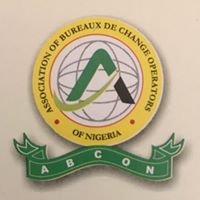
The Association of Bureaux De Change Operators of Nigeria (ABCON) and Nigeria Financial Intelligence Unit (NFIU) yesterday concluded a three-day joint training/sensitization programme on anti-money laundering and terrorist financing.
The programme, attended by head offices/zonal secretariats staff of ABCON and key personalities from the NFIU was held at the ABCON Secretariat, in Ikeja Lagos. .
Speaking to financial journalists at the end of the training, ABCON President, Alhaji Aminu Gwadabe, said the anti-money laundering training is intended to familiarize Bureaux de Change (BDC) operators with the process of money laundering — the criminal business used to disguise the true origin and ownership of illegal cash — and the laws that make it a crime.
The training, he said, will create awareness on the need to check money laundering and terrorist financing in this period of electioneering; ensure that BDCs are not used to launder funds by Politically Exposed Persons (PEPs). It will also upscale BDCs’ compliance with the Anti-Money Laundering and Combating the Financing of Terrorism (AML/CFT) for Banks and Other Financial Institutions in Nigeria Regulations, 2013.
Gwadabe explained that the NFIU is the arm of the global financial Intelligence Unit (FIU) and the joint training is part of the efforts of the Federal Government in combating money laundering, and financing of terrorist activities within the country. The training is in line with BDCs commitment to meeting their obligations towards the Financial Action Task Force (FATF) Recommendations.
He said the core role of the FIU is that it serves as the country’s central agency for the collection, analysis and dissemination of information regarding money laundering and the financing of terrorism and the training was an opportunity to get more acquainted with the role of NFIU and have a better understanding on how to file their transaction reports to regulatory agencies.
He said the trainings will enable BDCs to understand how to raise the Suspicious Transaction Reports (STRs) and Currency Transaction Reports (CTRs) to know when to submit such reports. He said these reports are raised by operators on suspicious activities of individuals and are submitted to Financial Intelligence Unit.
He said the training was also meant to increase BDCs participation and awareness on the reporting portal of NFIU which is www.goaml.nfiu.gov.ng. It is also expected to address the low level of skills in the BDCs subsector to prepare them for global competition and partnerships. The ABCON boss also alerted BDC operators on the circulation of hoarded currency in the economy.
He said both the NFIU and BDCs used the training opportunity to discuss Central Bank of Nigeria (CBN) penalties on money laundering and terrorist financing adding that an updated code of conducts for BDCs operators in Nigeria will be unveiled later.
The ABCON boss said the training is also backed by the Money Laundering (Prohibition) Act, 2011 (as amended) and Central Bank of Nigeria (Anti-Money Laundering and Combating the Financing of Terrorism for Banks and Other Financial Institutions in Nigeria) Regulations, 2013.
He said that ABCON has been working assiduously to cover all aspects relating to fight against money laundering and terrorist financing one of which is capacity building for its members and engagement with key stakeholders.
He said that ABCON is committed to raising awareness, confronting and advocating in the areas of money laundering and terrorist financing to address any noticed gap in filling their transaction reports.
Gwadabe said that money laundering and terrorist financing pose not only a threat, but are enormous threats, enormous challenges to the economy, security, and social life in Nigeria, the region and globally.
A joint study conducted by the Global Financial Integrity (GFI) and the African Development Bank (AfDB) showed that between 2000 and 2009, about $30.4 billion was illicitly transferred out of Africa each year. Over a longer period of 30 years, calculated from 1980, the resource drain was between $1.2 and $1.3 trillion.
Outflows from West and Central Africa stood at (37 per cent), followed by North Africa (31 per cent) and Southern Africa (27 per cent). The illicit financial flows (IFFs) are derived from various predicate offences of money laundering.
He said that the BDCs under ABCON do not want to be part of the groups contributing to the IFFs and therefore are doing everything within their power to ensure they comply with AML/CFT rules in the country.





